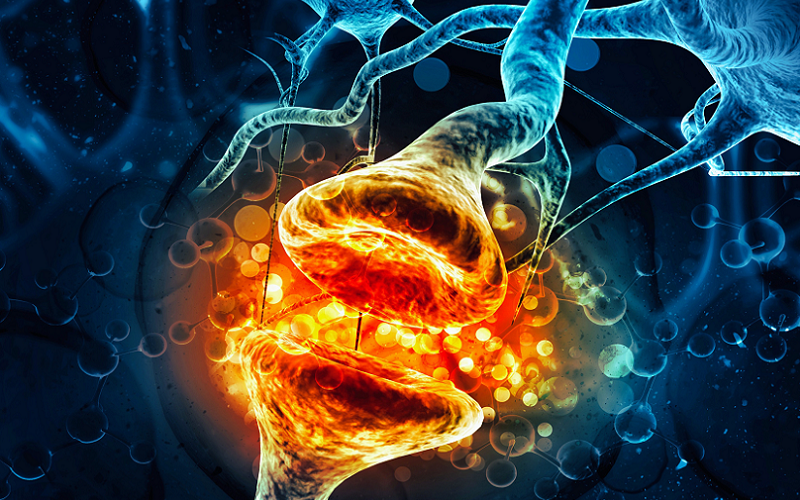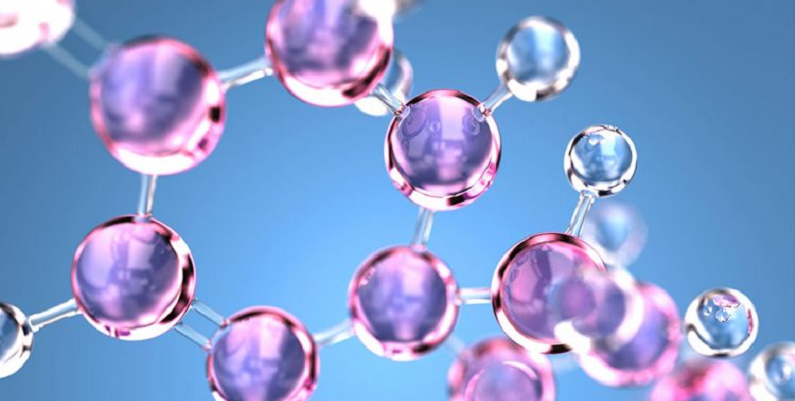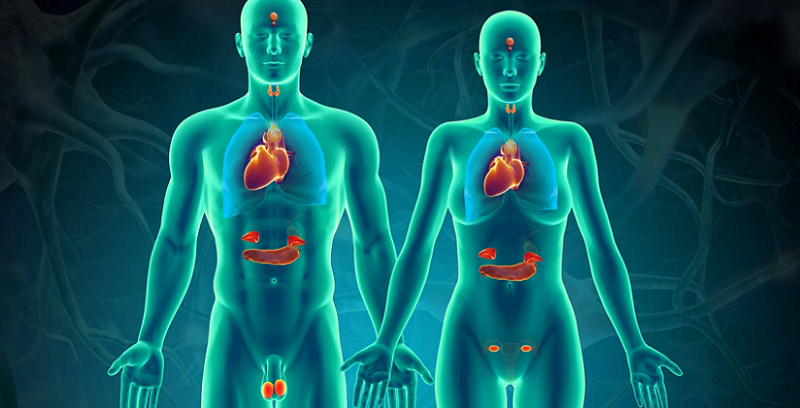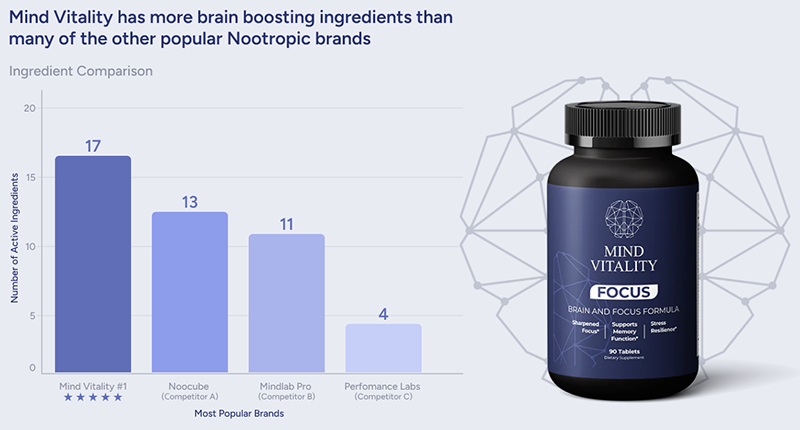
Hormones are the silent conductors orchestrating the symphony of our body’s functions. Hormones, often misunderstood and underestimated, play pivotal roles in regulating our health, wellness, and even our daily mood and behavior. Why are hormones so crucial, and what makes them distinct? From the lipid-derived hormones, which include the well-known steroids, to the complex structures of amino acid-derived and peptide hormones, each type has a unique story.
Contents
- Introduction to Hormones
- The Importance of Hormones in Health and Wellness
- Understanding the Nature of Hormones
- Different Types of Hormones and Their Characteristics
- The Connection Between Hormones and Neurotransmitters
- References
Introduction to Hormones
In the complex tapestry of the human body, hormones play a crucial role, acting as vital chemical messengers that travel through our bloodstream, influencing nearly every aspect of our health and well-being. Understanding the nature of hormones, their types, and their functions is not just a topic of scientific curiosity but also a key to unlocking the secrets of our body’s internal communication system.
Definition of Hormones
At their core, hormones are organic substances produced by glands and secreted into the bloodstream. They act as signal carriers, communicating with various parts of the body to ensure optimal functioning. This section will delve into what constitutes a hormone and how they differ from other bodily substances.
The Vital Role of Hormones in Body Functioning
Hormones are much more than just components of our body; they are the orchestrators of a multitude of biological processes. From growth and metabolism to mood and reproductive health, their influence is both profound and pervasive.
The significance of hormones cannot be overstated. They regulate critical functions such as growth, metabolism, and sexual function, and even play a part in how we respond to stress and how our body maintains its internal balance (homeostasis).
The Importance of Hormones in Health and Wellness
Hormones are not just biological substances; they are key players in the intricate dance of maintaining health and wellness. Their influence extends to every corner of our body, affecting everything from our physical growth to our mental health.
Hormonal Balance and Overall Health
The concept of hormonal balance is pivotal to understanding overall health. Hormones must be in the right amount at the right time to function effectively. An imbalance, whether it’s an excess or deficiency, can lead to a variety of health issues.
Hormonal imbalances can manifest in numerous ways, from metabolic disorders like diabetes to mood fluctuations and chronic fatigue. For example, thyroid hormones regulate metabolism, and an imbalance can lead to weight gain or loss, fatigue, and mood disturbances. Similarly, insulin, a hormone produced by the pancreas, is crucial in regulating blood sugar levels, and its imbalance is a primary factor in diabetes. Understanding these nuances helps us appreciate how maintaining hormonal balance is crucial for overall health and wellness [1].
The Impact of Hormones on Brain Health and Wellness
The brain is a hormone-responsive organ, and hormonal fluctuations can significantly impact mental health and cognitive functions. Hormones like estrogen and testosterone are not only vital for reproductive health but also influence mood, memory, and cognitive abilities. For instance, estrogen is known to have a protective effect on the brain, and its decline during menopause can contribute to memory problems and mood swings.
Stress hormones like cortisol have a direct impact on our emotional state. While cortisol is essential for responding to stress, chronic elevated levels can lead to anxiety, depression, and other mental health issues. Additionally, hormones like serotonin and dopamine, often associated with neurotransmitters, play a crucial role in regulating mood and emotions.

Understanding the Nature of Hormones
To truly grasp the scope of hormones’ influence on our health and wellness, it’s essential to understand their nature and composition. Hormones are often simply classified as chemical messengers, but their diversity in structure and function is vast.
Are Hormones Proteins?
One common question is whether hormones are proteins. This is a nuanced inquiry, as the answer varies depending on the type of hormone.
Explanation of Protein-based Hormones
Many hormones are indeed proteins or peptides (small proteins). These include insulin, glucagon, and growth hormone, among others. Protein-based hormones are typically synthesized in the endocrine glands and exert their effects by binding to specific receptors on target cells [2].
Distinction Between Hormones and Proteins
However, not all hormones are proteins. The distinction lies in their chemical structure and mode of action. While protein hormones are composed of amino acids and are water-soluble, other hormones, such as steroid hormones, are lipid-soluble and derived from cholesterol.
Are Hormones Lipids?
The classification of hormones as lipids applies specifically to a group known as steroid hormones.
Understanding Lipid-derived Hormones
Steroid hormones, such as cortisol, estrogen, and testosterone, are derived from lipids, specifically cholesterol. These hormones are fat-soluble and can easily pass through cell membranes, influencing the cells’ functions directly.
Role and Function of Lipid-based Hormones in the Body
The lipid nature of these hormones allows them to enter cells and directly interact with DNA, affecting gene expression and protein synthesis. This is in contrast to protein hormones, which generally act through receptors on the cell surface.
Are Hormones Steroids?
Not all hormones are steroids, but all steroid hormones are indeed hormones. This distinction is crucial in understanding their unique characteristics and functions.
Steroid Hormones and Their Characteristics
Steroid hormones, derived from cholesterol, include hormones like testosterone, estrogen, and progesterone. They are known for their role in reproductive health, stress response, and regulation of metabolism [3].
The Relationship Between Steroids and Hormones
While steroid hormones form a significant category, they are just one part of the hormonal spectrum. Other types, such as peptide and amino acid-derived hormones, play equally vital roles in the body’s functioning.
Are Hormones Chemicals?
Indeed, hormones are biochemicals, each with a unique structure and role in the body.
Hormones as Biochemical Messengers
Regardless of their type, all hormones function as biochemical messengers. They are synthesized by the body and released into the bloodstream to convey messages to various organs and tissues.
The Chemical Nature of Different Hormone Types
The chemical composition of hormones varies widely. While some are proteins or peptides, others are lipid-derived (like steroids) or based on amino acids (like adrenaline). This diversity allows them to perform a wide range of functions essential for maintaining health and homeostasis.

Different Types of Hormones and Their Characteristics
Hormones, the dynamic chemical messengers of our body, come in various forms, each with unique characteristics and functions. Understanding these differences is key to comprehending how hormones influence our health and well-being.
Lipid-derived Hormones
Lipid-derived hormones, also known as steroid hormones, are unique in their solubility and mechanism of action.
Definition and Examples
These hormones are synthesized from cholesterol and are fat-soluble, allowing them to easily pass through cell membranes. Examples include cortisol, which helps manage stress; sex hormones like testosterone and estrogen; and aldosterone, which regulates salt and water balance in the body.
Mechanism of Action and Functions
Their lipid-soluble nature enables these hormones to directly enter cells and interact with specific receptors within the cell nucleus. This interaction influences gene expression and modulates various physiological processes, from metabolism and immune response to stress management and reproductive functions [4].
Amino Acid-derived Hormones
Amino acid-derived hormones are synthesized from amino acids, primarily tyrosine and tryptophan, and have distinct properties.
Overview and Examples
These hormones include adrenaline and noradrenaline, produced by the adrenal glands, and thyroid hormones like thyroxine. They play crucial roles in the body’s response to stress (fight-or-flight response) and in regulating metabolic rate and energy levels.
Biological Roles and Significance
Unlike lipid-derived hormones, amino acid-derived hormones typically act more rapidly, targeting specific receptors on the surface of cells. They trigger immediate responses and are instrumental in managing acute stress, regulating metabolism, and maintaining the body’s energy balance.
Peptide Hormones
Peptide hormones, composed of chains of amino acids, represent a diverse group with a range of functions.
Characteristics and Examples
These hormones are generally water-soluble and include substances like insulin, which regulates blood glucose levels, and growth hormone, which influences growth and development. Other examples are antidiuretic hormone (ADH) and oxytocin.
Function and Importance in the Body
Peptide hormones bind to receptors on the surface of target cells, triggering a cascade of intracellular events that lead to the desired response. Their roles are diverse, overseeing processes such as growth, metabolism, and water balance, and even playing a part in social bonding and reproduction.
The Connection Between Hormones and Neurotransmitters
The intricate interplay between hormones and neurotransmitters is a fascinating aspect of human biology, revealing the complexity of our body’s communication systems. Both hormones and neurotransmitters are chemical messengers, but they operate in different realms and have distinct modes of action. Understanding their relationship and differences is crucial for a comprehensive grasp of how our bodies function and respond to internal and external stimuli.
Are Hormones Neurotransmitters?
This question often arises due to the similarities in their roles as chemical messengers. However, while they share some common ground, there are key differences in their functions and mechanisms [5].
Comparing Hormones and Neurotransmitters
Hormones are released by endocrine glands and travel through the bloodstream to reach their target organs, often affecting multiple parts of the body simultaneously. Neurotransmitters, on the other hand, are released by nerve cells and typically act locally, transmitting signals across the synaptic gap between neurons. This distinction in how they travel and the range of their effect is fundamental in differentiating the two.
The Interplay Between Hormones and Neurotransmitter Systems
Despite these differences, there is a significant interplay between hormones and neurotransmitters. For instance, the adrenal hormones adrenaline and noradrenaline also function as neurotransmitters in the brain. Similarly, neurotransmitters like serotonin influence the release of certain hormones, affecting mood and emotional states. This interconnectedness highlights the complexity of our body’s regulatory mechanisms, where hormones and neurotransmitters work in concert to maintain balance and respond to challenges.
References
[1] Types of Hormones
[2] Hormones
[3] Chemical Classes Of Hormones
[4] Characteristics of Hormones
[5] Feel-good hormones: How they affect your mind, mood and body

